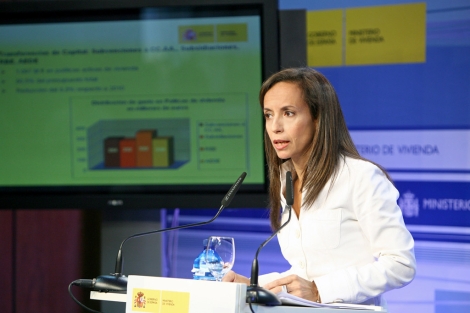BRASILIA, 10 Feb. The Brazilian Finance Minister Guido Mantega, has announced a cut of 50,000 million reais ($ 22.258 million euros) in the budgets of 2011, as part of measures to contain inflation and ensure and economic growth of 5 percent this year. In parallel with public accounts will be audited, as announced by Planning Minister Miriam Belchior.
This measure is mainly due to the need to eliminate economic incentives approved in the last two years to avoid the impact of the crisis in the South American country. "We eliminate all the tax benefits that were adopted to support the economy in 2009 and 2010, when the Government began to implement tax breaks, approved grants and increased costs," said Mantega.
It also raises as an emergency plan against inflation, which at the end of 2010 stood at 5.9 percent, well above the 4.5 percent set by the Government. "All countries have problems of inflation, are not the only (...) But we can not stand leaving it forward," added Mantega, was quoted by the Agency of Brazil.
The achievement of these goals goes through freeze the minimum wage of about 545 reais (242 euros), cut by 50 per cent of Government current spending and slightly increase the interest rate the National Bank of Economic and Social Development (BNDES) . Beyond these cuts, Belchior announced that next week will be announced adjustments for ministries and state secretariats.
However, the head of planning ensured the continuity of some key policies. Thus, investment will remain intact in social programs and the Growth Acceleration Program (PAC), worth 170,800 million reais ($ 76,000 million euros), mainly destined for the construction of infrastructure. STATE AUDIT In parallel, Belchior announced the completion of an audit of public accounts to optimize spending, which will focus on the group of officials.
Specifically, we examine the possible accumulation of jobs, their wages and conditions of retirement, to correct the shortcomings of the procurement system. To complement this measure, the federal government provide states and cities joining the Integrated Human Resources Management (EMIS) to enable them to cross their data and also solve problems locally.
So far, they have joined the campaign 13 of the 27 federal units that make up the country. 


This measure is mainly due to the need to eliminate economic incentives approved in the last two years to avoid the impact of the crisis in the South American country. "We eliminate all the tax benefits that were adopted to support the economy in 2009 and 2010, when the Government began to implement tax breaks, approved grants and increased costs," said Mantega.
It also raises as an emergency plan against inflation, which at the end of 2010 stood at 5.9 percent, well above the 4.5 percent set by the Government. "All countries have problems of inflation, are not the only (...) But we can not stand leaving it forward," added Mantega, was quoted by the Agency of Brazil.
The achievement of these goals goes through freeze the minimum wage of about 545 reais (242 euros), cut by 50 per cent of Government current spending and slightly increase the interest rate the National Bank of Economic and Social Development (BNDES) . Beyond these cuts, Belchior announced that next week will be announced adjustments for ministries and state secretariats.
However, the head of planning ensured the continuity of some key policies. Thus, investment will remain intact in social programs and the Growth Acceleration Program (PAC), worth 170,800 million reais ($ 76,000 million euros), mainly destined for the construction of infrastructure. STATE AUDIT In parallel, Belchior announced the completion of an audit of public accounts to optimize spending, which will focus on the group of officials.
Specifically, we examine the possible accumulation of jobs, their wages and conditions of retirement, to correct the shortcomings of the procurement system. To complement this measure, the federal government provide states and cities joining the Integrated Human Resources Management (EMIS) to enable them to cross their data and also solve problems locally.
So far, they have joined the campaign 13 of the 27 federal units that make up the country.



- Eco Soccer Jerseys - Nike Unveils the New Brasil National Team Kit (GALLERY) (03/02/2011)
- Banco do Brasil seeks Chile buys besides Corpbanca (28/01/2011)
- Injured Gladstone (Desportivo Brasil) suffers a humiliating stretcher FAIL (24/01/2011)
- Canal Brasil: Swimming pool (21/12/2010)
- Canal Brasil: Restaurant (21/12/2010)
No comments:
Post a Comment